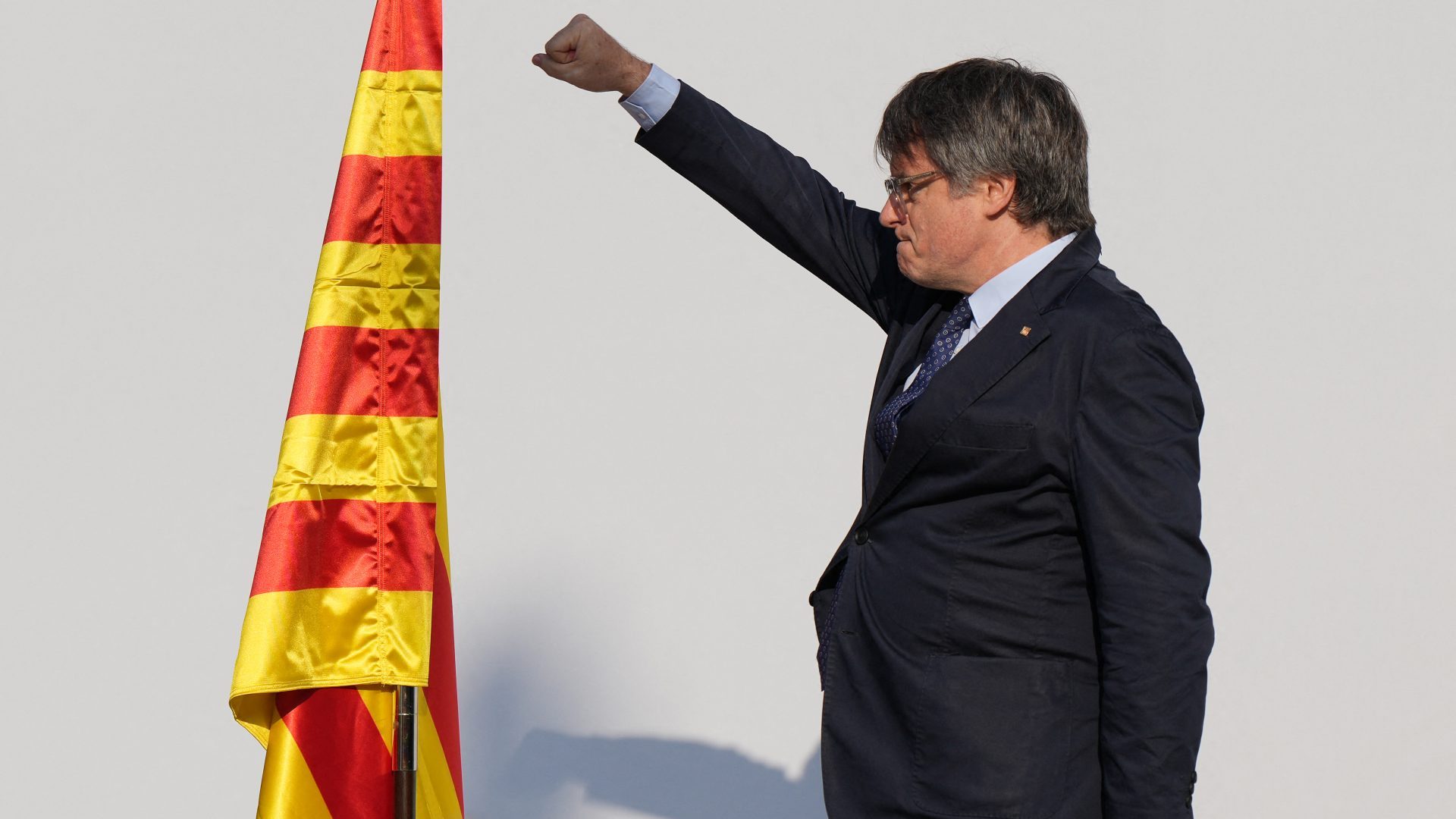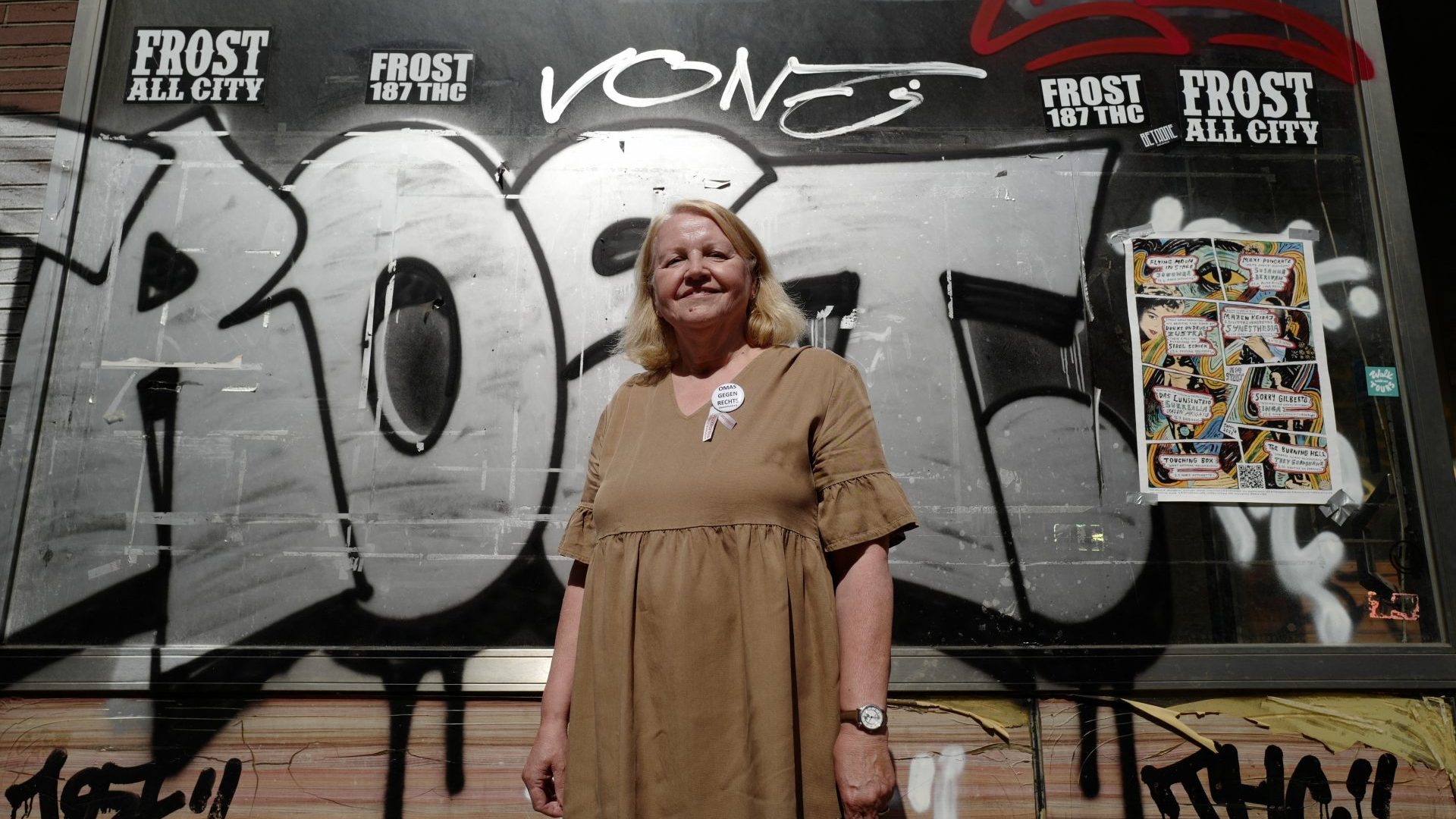Carles Puigdemont, Catalonia’s exiled former president, really, really doesn’t want to get arrested and, I suspect, the local police really, really don’t want to arrest him, either.
On Thursday he showed up at a rally near the Catalan parliament building in Barcelona and then vanished like the Scarlet Pimpernel. A manhunt began, road blocks were set up, there were reports of a dragnet – the whole shebang.
It’s a rather pleasant drive from Barcelona to Belgium, where Puigdemont has been living in self-imposed exile since leading the 2017 unrecognised referendum on whether to split Catalonia from Spain, and the safety of the French border is only about a 90-minute dash north.
The cops seemed very half-hearted to me as the local news showed them scouring the highways, byways and border region for the elusive fugitive. Two officers have been arrested for allegedly helping him to escape.
Sure enough, he showed up back in Belgium on Friday, telling an interviewer he had a duty to “not let himself be arrested”.
How hard could it have been, really, to nick him when he was in Barcelona? I knew he was coming. The police knew he was coming. Everyone knew he was coming – he had been saying for months that he planned to show up for the vote in parliament that would see Salvador Illa become the region’s latest president. A few thousand supporters gathered at the Arc de Triomf waving Puigdemont’s photo and, sure enough, up he popped. They knew he was coming, too.
“I’ve come today to remind you that we’re still here. Long live Catalonia!” he told the crowd.
The press at the parliament building, on the other side of the park, down beside the zoo, were poised for him to show up and hoping to get some juicy shots of him being bundled into a police van.
But no. Suddenly he was gone. So the police leapt into action and launched “Operatiu Gabia” (Operation Cage) to try and catch him. Puigdemont, it seems to me, has no intention of ever being caged for the cause of Catalan independence.
Other separatist leaders, however, did exactly that. Former vice-president Oriol Junqueras was sentenced to 13 years in prison for sedition and misuse of public funds. He spent three and a half years in jail. Several other leaders also spent significant chunks of time behind bars.
I was on the ground as a reporter during the referendum and the heavy-handed police attempts to stop people voting, and I was in the parliament building when Puigdemont sort of declared independence. I was also, shortly after, on the streets of Barcelona when riots broke out in the months after Madrid dissolved the Catalan parliament. I was cracked on the head by a rioter’s flying wine bottle and hit on the ankle by a policeman’s rubber bullet (I don’t think either were actually aimed at me).
Puigdemont then, as now, had vanished, apparently in the boot of a car. He eventually settled in Waterloo, Belgium, of all places.
Many separatist leaders, including former vice president Junqueras, were pardoned in 2021 by the government of Pedro Sánchez, and a contentious amnesty law for Catalan nationalists was squeezed through Spain’s Congress in May.
Several other separatist leaders have now returned from exile, thanks to the amnesty law. Puigdemont, however, still has a couple of active cases against him and it remains unclear how these will play out.
I was again on the ground in May, reporting on the elections in Catalonia. Things were a lot calmer than during the referendum seven years ago. Lots of voters I spoke to, even some separatists, were glad to be clear of the whole sorry mess caused by Puigdemont’s clumsy dash for independence. And it was the first time in over a decade that a separatist was not elected president. Puigdemont’s Together For Catalonia Party came second behind Illa’s Socialists.
Presumably Sánchez and Illa, Spain’s former minister of health, were dreading Puigdemont trying to enter parliament and, far worse, the images of his inevitable arrest if he did.
Surely the best result all round would be for him to slip into a car and dash back to Belgium without having felt the bite of those dreaded handcuffs on his wrists?
Adrian Addison is a journalist based mostly in Barcelona



